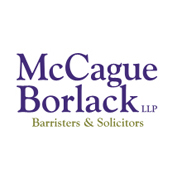By Alan Drimer
In order to protect limitation periods, especially in cases where liability is yet to be determined, there is an obligation on counsel to identify, name, and pursue all parties who may be liable to the plaintiff(s). However, as the discovery process begins, parties often become aware that they have added in a party that will bear no liability to the plaintiff(s). Often, parties are able to consent to a dismissal or discontinuance without costs; however, there are cases in which defendant(s) will not go out without costs. In these cases, parties can move for a ruling under Rule 23.05, which states:
Costs of Discontinuance, Deemed Dismissal
23.05 (1) If all or part of an action is discontinued, any party to the action may, within thirty days after the action is discontinued, make a motion respecting the costs of the action. O. Reg. 394/09, s. 8.
(2) If a crossclaim or third party claim is deemed to be dismissed, any party to the crossclaim or third party claim may, within thirty days after the deemed dismissal, make a motion respecting the costs of the crossclaim or third party claim. O. Reg. 394/09, s. 8.
However, just because a party can request their costs for being added into an action, does not mean that costs will automatically be awarded.
In ruling on these motions, there have been two tests employed by the courts, the first is the “justified action” test, and the second is the “exceptional circumstances” test.
Justified Action
The justified action test requires the plaintiff(s) to satisfy the Court on a balance of probabilities that it had a bona fide cause of action, that it was not frivolous or vexatious, and there was some justification to commence proceedings. This test was enunciated by Henry, J. in Provincial Crane Inc. v. AMCA:1
In order to establish that it ought to be relieved of costs in the court's discretion it is my opinion that, at this early stage of the action, the plaintiff must satisfy the court that the material filed discloses a bona fide cause of action that is not frivolous or vexatious which the plaintiff had some justification to commence, having regard to the conduct of the defendant. Since the court cannot, at this early stage, make final findings of fact or credibility, the court is left to determine if, notwithstanding conflict, there is some evidence to justify the commencement of the action whether or not it can be said that the action may or may not ultimately succeed.
Exceptional Circumstances
The exceptional circumstances test holds that the Defendant(s) are entitled to their costs, absent an exceptional circumstance. This test was enunciated by Dambrot, J. in Mele v. Thorne Riddell:2
Rule 23.05 provides that where a plaintiff discontinues an action against a defendant, the defendant is entitled to the costs of the action unless the court orders otherwise. The rationale for this presumption in favour of an entitlement to costs is obvious. By commencing an action, a plaintiff compels a defendant to incur litigation expenses. Only when there is a judicial determination that the plaintiff's action was appropriately brought does the responsibility for the litigation costs logically shift to the defendant. Where an action is discontinued by the plaintiff, there is no such judicial determination. In such a case, absent some showing of exceptional circumstances, the defendant should be entitled to recover its costs.
What Approach is Being Followed?
While there are cases in which costs have and have not been awarded on a Rule 23.05 motion, there appears to be emerging a bias towards the justified action test.3
Most recently, Nesbitt v. Jeffrey,4 the Defendant driver issued a Third Party Claim against the MTO for contribution and indemnity. Discoveries were completed, and five days after receiving the undertakings from the MTO, the Defendant agreed to discontinue the third party action. However, the MTO was not agreeable, requested its costs, and brought a motion pursuant to Rule 23.05 for their costs in defending the action. In denying costs (and awarding costs to the Defendant for resisting the motion), the Court was not impressed with MTO's position that it should be awarded its costs, finding:
[19] A mere five days after receiving the answer to the question taken under advisement at the MTO representative's examination, Jeffrey offered to discontinue the third party action. Seemingly ignoring this clear signpost that the main action was over, and that Jeffrey was offering to shut the third party claim down, the MTO continued to work on the file. For example, it took no steps to end the retainer with the expert it had engaged just two weeks before Jeffrey's offer to dismiss. The MTO's bill of costs is approaching $30,000, fifty percent of which is comprised of the cost of this needless report.
[20] I find it was not reasonable for the MTO to insist on its costs in this instance. There was nothing frivolous or vexatious about Jeffrey's third party claim against the MTO. Nor was the third party claim pursued in bad faith. Being brought into a lawsuit in instances where road conditions may have played a factor is eminently reasonable. Awarding costs to the MTO to assuage its frustration could serve to cast a chill over future claims against it.
As such, it is clear, when the above cases are read in conjunction, that the justified action test appears to be the default ruling of the Court. However, implicit in these rulings is the fact that at all times, the plaintiff(s) were timely in discontinuing the claims once the requisite evidence is borne out through the discovery process, be it examinations or documentary. The key takeaway is that plaintiff(s) should not drag their feet in discontinuing their claim(s) against defendant(s) for which a claim has no reasonable prospect of success.
- Provincial Crane Inc. v. AMCA International Ltd., [1990] O.J. No. 806
- Mele v. Thorne Riddell, [1997] O.J. No. 443
- Gianopoulus v. Olga Management Ltd., [2004] O.J. No. 4273; Golda Developments Inc. v. Dawe, [2008] O.J. No. 1565
- Nesbitt v. Jeffrey, 2022 ONSC 144


